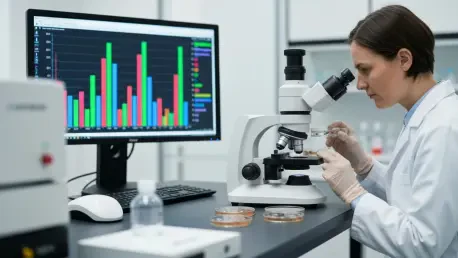
The intricate challenge of retraining the immune system to tolerate specific self-antigens without compromising its protective capabilities has driven the development of highly sophisticated therapeutic platforms. The emergence of engineered extracellular vesicles (EVs) represents a significant

The intricate web of biochemical signals governing the body's fat storage mechanisms has long presented a formidable challenge to medical science, but a recent discovery may have untangled a critical thread. Research has unveiled a previously unknown enzyme that acts as a master switch for fat

A ghost from medicine's past, a chemical once notorious for its lethal side effects in the pursuit of weight loss, is being cautiously resurrected by scientists aiming to solve the modern obesity crisis. This ambitious endeavor revisits a century-old idewhat if a drug could make the human body

A foundational pillar of cancer research has received significant reinforcement through a new study that confirms the validity of a key laboratory model for high-grade serous ovarian carcinoma (HGSOC), the most lethal form of ovarian cancer. This disease presents a formidable clinical challenge,

Deep within the microscopic confines of every human cell, a biological masterpiece unfolds not as a simple string of code but as a dynamic, three-dimensional sculpture that dictates life itself. A landmark study has now provided the most detailed and extensive atlas of this hidden architecture,

A promising class of anti-cancer drugs, designed with pinpoint precision to kill tumor cells, was abruptly sidelined by a mysterious and life-threatening side effect, leaving a potential breakthrough in oncology on the shelf. This clinical roadblock highlighted a fundamental challenge in modern